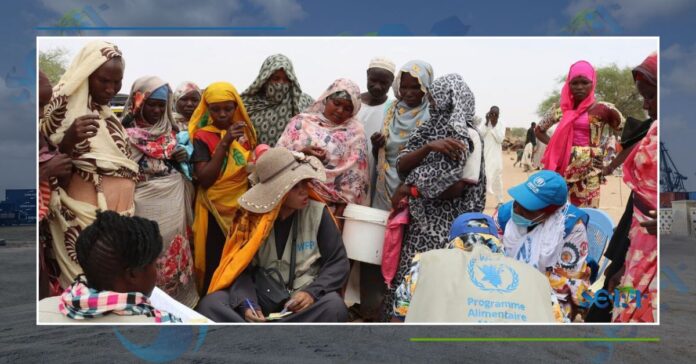According to the United Nations, the conflict in the past 14 months has killed around 14,000 people and wounded 33,000. However, humanitarian and rights groups claim that the numbers could be much higher.
The ongoing war in Sudan is not only destroying cities but also causing unprecedented human suffering. One cannot overlook the horrific scenes in Gaza and the destruction committed by the Israeli military; however, it is imperative not to lose sight of the other devastating war ravaging an entire country.
Many are aware of the war crimes committed by the Bashir regime in Darfur. Sadly, a similar incident is now unfolding in the same region of Sudan, possibly even graver than the one in 2005. In addition to the destruction of the capital, Khartoum, the war has spread to the east, west, and south of the country. Wali-Madani, Sudan’s second-largest city, is now under the control of the Rapid Support Force (RSF). Thousands of people fear being trapped in the city of Al-Fasher, the provisional capital of North Darfur, where fierce fighting has been ongoing for weeks. According to The Sudan Conflict Monitor, a group of experts and rights activists, the control of Singa, the provincial capital of Sennar, could have devastating humanitarian consequences. This includes potential disruption of large-scale agricultural programs in the nearby provinces of Blue Nile, White Nile, and Jazira, which once formed Sudan’s breadbasket. The situation is further complicated and dangerous because the war is taking on a tribal and political dimension, which could result in unprecedented bloodshed in the region.
According to a UN report (UN.news.org, 18/06/2024), Sudan has the highest number of displaced people in the world, with 9.5 million people forcibly displaced—7.3 million internally displaced and 1.9 million in neighboring countries. The majority of these people are facing famine after more than a year of conflict. The refugee crisis in Sudan is becoming untenable because most of the countries bordering Sudan are poor and/or suffering from internal political instability, civil wars, and famine.
The Sudanese crisis demands immediate action from the international community and unwavering support for a peaceful resolution. Although the regional organization IGAD is trying to mediate between the warring parties and other factions in Sudan, the outcome has been unsatisfactory. The initiative taken by the Saudis and the USA in Jeddah has reached a deadlock, with both signatories violating the agreement for a ceasefire and peaceful resolution of the conflict. Despite these setbacks, countries in the region must continue working to resolve the conflict by engaging directly with warring parties through dialogue and impartial mediation.
In addition to the peace initiatives by regional organizations and the African Union, the UN Security Council should play a leading role by investigating war crimes and crimes against humanity committed by all parties and bringing the perpetrators to an international court. Moreover, the council should impose sanctions on any state or group contributing to the situation by supporting military groups financially and militarily. Furthermore, an arms embargo on the warring parties that cripples their ability to engage in prolonged warfare must be swiftly enforced.
In conclusion, the conflict has the potential to escalate into widespread turmoil and bloodshed in the Horn of Africa and the Red Sea basin. If the regional countries, and particularly the Sudanese elite, fail to act responsibly, Sudan’s sovereignty and integrity will be in peril. The familiar map of Sudan risks disappearing, and the creation of new, smaller states could serve as a dangerous precedent for insurgency wars of secession across the African continent.

